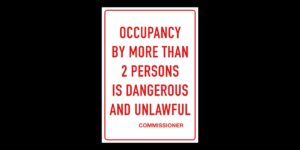How to Relieve Anxiety: Effective Tips to Handle Being Anxious
Joshua Henderson
Human experience has lots of facets to it, including a variety of thoughts, experiences, and feelings that accompany it. Anxiety is one aspect common to many people. It can shape your life in profound ways, but it doesn’t have to. It’s possible to find peace and be able to face challenges without feeling overwhelmed.
Disciples of Jesus can find themselves being overtaken by anxiety. June, a mom of two who has followed Jesus for years, finds herself at times being gripped by fear. Sometimes, this means she has racing thoughts, she struggles to sleep, and she walks around with a knot of worry throughout her day. These anxious thoughts aren’t always clearly defined, but it’s possible to relieve them and find a sense of peace.
While anxiety can be deeply challenging, it can also draw us to seek out a deeper connection with the Lord and to rest in Him.
Making Sense of Anxiety
Anxiety isn’t all bad. It’s a natural human response to stress, and that stress may be the result of uncertainty or an upcoming event. We feel anxious before a date, or when we’re about to talk to a crowd, or when we’re driving or just about to start a race. Anxiety is often accompanied by feelings of nervousness, fear, or worry, as well as other features like being restless, your heart beating fast, struggling to focus, and trembling.
These bodily reactions all serve a purpose, helping us to respond to the situation that we perceive as being threatening or stressful. It’s how our bodies prepare us to leap into action to do what it takes to be safe. The issue is that we can become anxious all the time, or those symptoms of anxiety can become overwhelming and persistent, which makes it hard to perform everyday tasks or to maintain our well-being.
Anxiety can be both a blessing and a challenge. It’s part of our survival toolkit, and it can serve as a way to highlight areas of our lives where we need care, time to reflect, or where change is needed. Instead of perceiving it as an obstacle to overcome, anxiety can help us depend on the Lord, anchoring us even (or especially) when things seem uncertain.
Anxiety becomes a challenge when it derails our ability to function or when it succeeds at pulling our focus away from the Lord. We can become so consumed with our anxieties and worries to the point where we lose sight of anything else, including the Lord’s purposes and plans for our lives. This is one reason Jesus invites us to replace anxiety and worry with radical trust and rest (Matthew 6:25-34).
Some Signs that You Struggle with Anxiety
Is there a way to tell the difference between run-of-the-mill anxiety that we all experience on some level every day, and the kind of anxiety that undermines your well-being? Anxiety can manifest itself in several ways, and some of the common signs that you might struggle with anxiety include the following:
Avoidance behaviors You avoid certain places, activities, or situations due to fear or anxiety.
Ruminating You struggle to concentrate or focus on tasks, and you find yourself dwelling on negative thoughts, struggling to let them go.
Sleep issues Anxiety may be at the root if you find that you struggle to fall asleep, or you can’t stay asleep and have restless sleep due to racing or restless thoughts.
Fear or apprehension Feeling apprehensive or fearful about specific situations, certain objects, or the future. Anxiety also leaves you feeling on edge, restless, or easily irritated by small things.
Feeling overwhelmed Everyday tasks are just that, and they shouldn’t feel overly taxing. If you feel like you’re losing control or you’re overwhelmed by everyday situations or tasks, that could be the result of anxiety.
You may also feel certain physical symptoms because of anxiety, and these include heart palpitations, sweating, trembling, headaches, digestive issues, and muscle strain or tension in areas such as your back, shoulders, or neck. You should talk to a doctor or a mental health professional if you experience these symptoms. They can offer you strategies to help you cope and address any underlying issues that are fueling your anxiety.
The Impact of Anxiety
Anxiety has its place in our lives, but when it’s excessive, it can be detrimental. If anxiety becomes overwhelming to the point of limiting a person’s ability to function, it may be an anxiety disorder, which is a diagnosable condition. If you struggle to go to certain places, or you find you cannot do everyday things like going outside, talking with people, driving, or touching others, it’s important to seek professional help for a proper diagnosis.
 When a person feels anxious, that affects their entirety of who they are, their spirit, mind, and body. Spiritually, feeling anxious can make one doubt the Lord and His good purposes. For someone like June, anxiety can make them wonder whether the Lord has called and equipped them to do certain works of service. Anxiety can make you feel as though you have been disqualified, and it can result in struggles to pray or connect effectively with others.
When a person feels anxious, that affects their entirety of who they are, their spirit, mind, and body. Spiritually, feeling anxious can make one doubt the Lord and His good purposes. For someone like June, anxiety can make them wonder whether the Lord has called and equipped them to do certain works of service. Anxiety can make you feel as though you have been disqualified, and it can result in struggles to pray or connect effectively with others.
Mentally, anxiety can result in being distracted and overwhelmed, which makes it hard to work, play, interact well with others, and focus on the here and now. The feelings of irritability, dread, or even detachment that can accompany anxiety can make it challenging to navigate everyday life. It’s harder to make decisions, take calculated risks, and make plans effectively.
Anxiety can also affect you physically. It can be plain uncomfortable to feel anxious. At other times, it can add to feelings of embarrassment, especially with symptoms like profuse sweating or when your mind goes blank due to racing and restless thoughts. Being unable to quiet your mind means you struggle to fall and stay asleep, which means you’ll be dealing with fatigue and struggle to regulate your emotions as a result.
The other physical effects of anxiety, such as tension, headaches, and gastrointestinal distress, mean that you carry physical discomfort with you wherever you go.
Effective Ways to Manage and Relieve Anxiety
Anxiety can be a huge challenge to deal with, but it isn’t an impossible mountain to climb. There are effective strategies you can implement to manage and relieve anxiety. Consider implementing some or all of these to help you deal with anxiety:
Self-reflection Pause and consider your own anxiety. When do you feel most anxious? Some people find themselves feeling anxious in the morning or at night. This may be related to fears of facing the day ahead, or it could be connected to habits like doomscrolling, which can put you in an anxious frame of mind. Knowing what makes you anxious can help you change habits, for instance, to avoid fueling it.
Prayer and trust When we pray, we’re not simply asking the Lord for relief from something. Prayer is also about trusting and surrendering ourselves and our burdens into His care and presence. The Lord is trustworthy, and He is in control, but that’s a hard truth for our hearts to accept (Proverbs 3:5-6). We try to make our own way, but that doesn’t end well. Pray, submitting your needs and anxieties to Him (Philippians 4:6-7; 1 Peter 5:6-7).
Reflection on Scripture There’s a saying, “You are what you eat.” Scripture reminds us, “Keep your heart with all vigilance, for from it flow the springs of life.” (Proverbs 4:23, ESV) Being immersed in Scripture, reflecting on what God says can help to realign our thoughts, intentions, horizons, and purposes with the Lord’s. This also allows us to interrogate anxious thoughts and weigh their truthfulness.
Practice gratitude Take time each morning, during the day, and at night to focus on your blessings, even the ‘small’ ones. Doing this allows you to shift your mindset away from your fears and toward gratitude and trust in the Lord, the giver of all good gifts (James 1:17). When we practice gratitude, we remind ourselves that the Lord continues to provide for us and that He is faithful.
Take on healthy routines Your anxiety can be triggered or worsened by things that you consume, like nicotine, caffeine, or sugar. Taking on healthy routines and habits like getting a proper night’s rest each night, regular exercise, and a balanced and healthy diet can all help to reduce the symptoms of anxiety.
Seek support You don’t have to deal with anxiety on your own. Support from friends and other loved ones can make a difference. Just knowing that you’re not alone is a huge win. You can also seek professional help from a mental health professional, like a counselor or therapist. They can help provide you with perspective and tools to manage anxiety well, including helping you discern unhealthy patterns of thought and behavior that feed anxiety.
In some instances, medication may be required to help address severe symptoms of anxiety, in addition to the talk therapy your counselor or therapist provides. With help, you can bring anxiety under control and lean into the peaceful life the Lord desires for us all.
“Mountain River”, Courtesy of Sonyuser, Pixabay.com, CC0 License






